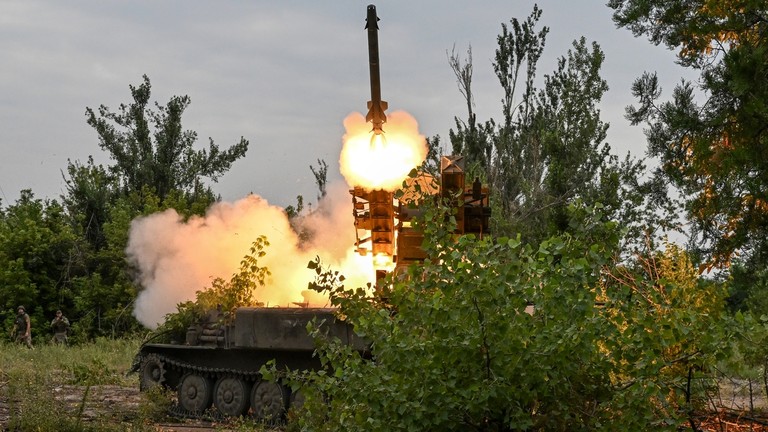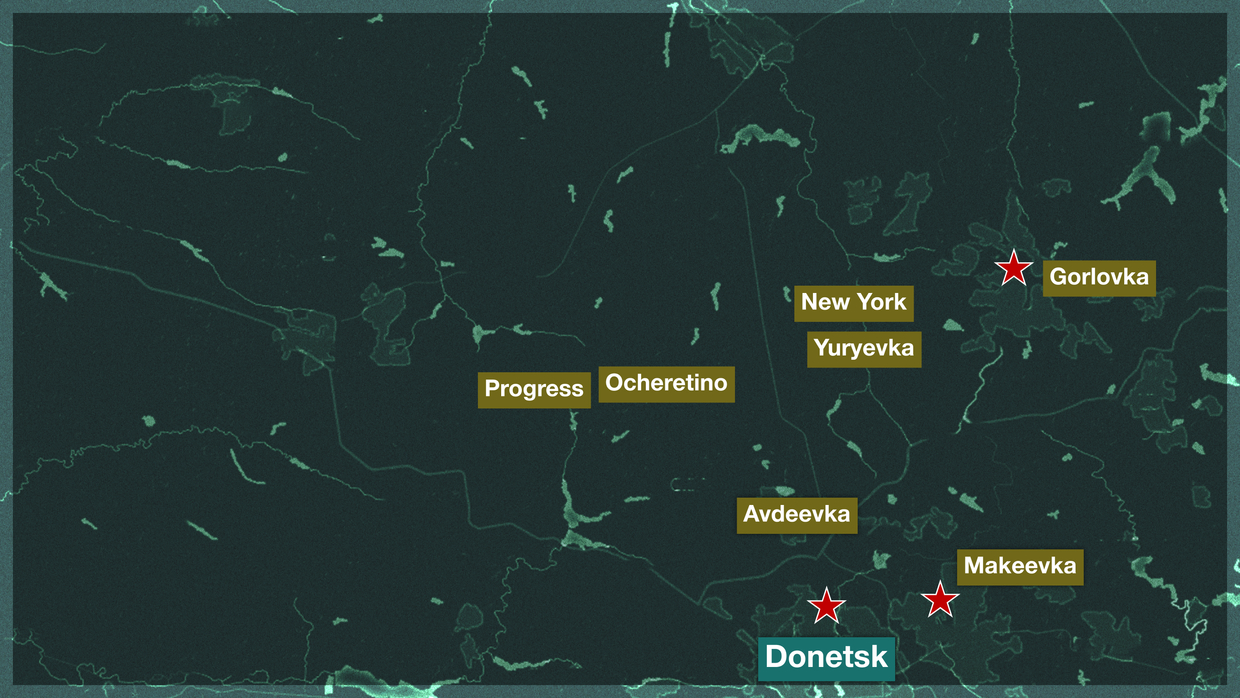©Sputnik/Stanislav Krasilnikov
The past week in the Russia-Ukraine conflict has seen active hostilities along the front line, with the Russian military reporting new gains in several areas and as well as claimign to have inflicted mass casualties on foreign mercenaries fighting for Kiev.
Last Sunday, the Russian Defense Ministry reported that the military had seized the villages of Rozovka and Peschanoye Nizhneye, located in Russia’s Lugansk People’s Republic (LPR) and Ukraine’s Kharkov Region respectively. The development signaled the spread of combat to the vicinity of the Ukrainian town of Kupiansk and the Oskol River. The local front line spans roughly along the border between the LPR and Kharkov Region and has remained largely static over the past few weeks.
On Tuesday, the Russian military reported the liberation of Ivano-Daryevka, a small village located in Russia’s Donetsk People’s Republic. The settlement is located roughly 8km to the southeast of the Ukrainian-controlled town of Severs, which has long-served as a major stronghold for Kiev’s troops and remains a major obstacle for the potential Russian advance westward.
The most active combat continued to the northwest of the city of the strategic DPR town of Avdeevka, which was liberated by the Russian military in February. Russian troops continued to advance near the town of Ocheretino, with the Ukrainian forces apparently unable to stabilize the situation in the area.
On Saturday, the Russian military reported the liberation of Lozovatovskoye, a tiny settlement located to the north of the village of Progress. The swift advance was marked with two company-sized Ukrainian forces reportedly ending up in tactical encirclement in the trenches between the two villages.
According to former Ukrainian MP and ex-deputy commander of the notorious neo-Nazi Azov regiment, Igor Mosiychuk, all the commanding officers of the two companies were killed, while the battalion-level command did nothing to fix the situation, only demanding that the soldiers fight to their deaths.
Strikes on foreign ‘instructors’
The week has been marked by new strikes on foreign mercenaries fighting in Ukraine, with up to 90 estimated dead, according to the Russian military.
The Russian Defense Ministry on Tuesday said it targeted a building in the Ukrainian town of Dergachi, Kharkov Region, used to house Western “instructors and mercenaries.” The location was hit by a ballistic missile, fired by an Iskander-M system. Footage of the strike shows the building sustained a direct hit and partially collapsed.
Another strike on foreign fighters was conducted by the country’s military on Thursday with a ballistic missile of the same type. The temporary accommodation point housing Ukrainian servicemen with the 151th mechanized brigade and foreign mercenaries was discovered in an industrial area in the city of Kharkov, the ministry said.
Another video circulating online shows a missile strike on the bridge across the Oskol River located in the town of Kupiansk-Uzlovoy, Kharkov Region. The bridge had been hit by the Russian military at least twice this year, but apparently was repaired. The structure was likely hit by an air-to-surface Kh-38 missile, sustaining heavy damage, footage indicates.
Hunt for US-supplied HIMARS launchers
Over the past week, the Russian military reported the destruction of several US-supplied HIMARS launchers, which have long been priority targets for Moscow. Though the long-range multiple rocket launchers have been touted by Ukraine as the ultimate tool to strike high-value assets, the systems have been widely used by Kiev for the indiscriminate shelling of civilian infrastructure.
On Monday, the Russian Defense Ministry reported the destruction of a HIMARS and its crew in the village of Novopetrovka in Ukraine’s Nikolayev Region. The system was tracked by a surveillance drone to a hangar used as a staging point, with the location promptly hit by a ballistic missile fired by an Iskander-M system. The strike obliterated the hangar, with secondary detonation and a bushfire observed at the site, footage shared by the military shows.
The destruction of another HIMARS was reported by the Defense Ministry on Friday. The vehicle, as well as other pieces of military equipment, was discovered concealed in an industrial area located in the Ukrainian-controlled city of Kramatorsk, DPR. The hangar used to station the equipment was struck by an Iskander-M missile, the military said.The destruction of another HIMARS was reported by the Defense Ministry on Friday. The vehicle, as well as other pieces of military equipment, was discovered concealed in an industrial area located in the Ukrainian-controlled city of Kramatorsk, DPR. The hangar used to station the equipment was struck by an Iskander-M missile, the military said.
Infrared footage shared by the military shows a major explosion and a massive column of fire and smoke emitting from the hangar. Apart from the HIMARS, five Soviet-era BM-21 Grad multiple rocket launchers, five tanks, and up to ten other armored vehicles were destroyed in the strike, according to Moscow’s estimates.
Disrupting Kiev’s electronic warfare capabilities
The Russian military has continued its efforts to strike Ukrainian electronic warfare and early warning systems, such as active jammers, radars, passive detectors, and other equipment. The continuous hunt for the systems enables the Russian forces to operate more effectively, hampering Kiev’s capabilities to intercept or evade incoming projectiles of various types.
On Monday, a video purporting to show the destruction of a US-supplied Ukrainian AN/TPQ-50 artillery radar surfaced online. The system was reportedly found near the town of Kupiansk, Kharkov Region, and hit by a Russian Lancet-family loitering munition.
Another video that emerged online this week shows a Lancet striking a Ukrainian homegrown Plastun electronic warfare support station. The sensor was found deployed in a wooded area, with a Starlink satellite terminal seen nearby. The hardware was hit by the kamikaze drone and apparently destroyed, footage suggests.
A Ukrainian Nota electronic jammer station also fell victim to a Lancet kamikaze drone it was supposed to deter. Surveillance drone footage circulating online shows the system concealed in a wooded area with only its antennas protruding from the shrubbery.
The Lancet apparently scored a direct hit on the system, with open flames seen at the location after the strike, footage shows.



No comments:
Post a Comment